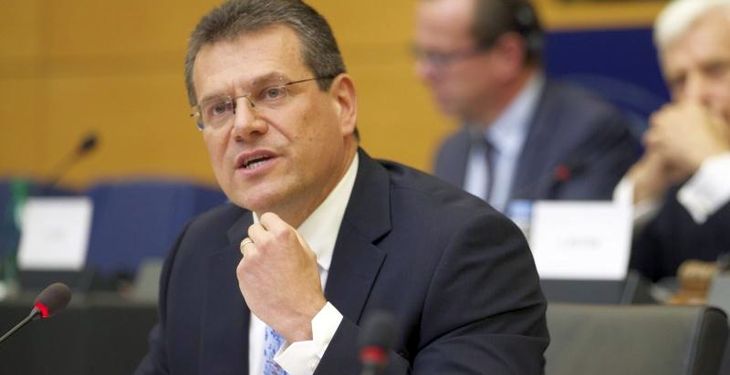Stricter EU energy efficiency and performance laws will be rolled out by the European Commission next year, and enforcement of existing regulation will be further stepped up, the bloc’s energy chief told EurActiv.
Commission Vice-President Maroš Šefčovič confirmed that the new rules would have stronger requirements than the existing Energy Efficiency Directive (EED) and Energy Performance of Buildings Directive.
But he conceded there is little chance of national governments agreeing to revise upwards their target of increasing their energy efficiency by 27% by 2030, which was agreed last October with the option of revisiting it in 2020.
Infringement procedures that include Romania
Thursday morning, the Commission referred Greece to the European Court of Justice for not implementing the EED. It faces a daily penalty of € 29145.60 until the law is put in place.
Final warnings were also sent to Germany, Austria, Portugal, Croatia, Bulgaria, Ireland, Latvia and Romania. The next step will be to bring the governments in front of EU judges.
In March, the Commission brought legal action against every EU member state, with the sole exception of Malta, for failing to make the EED national law
2012’s EED failed to trigger the renovation of the EU’s building stock, which would bring consumption and cost savings, because national governments have not put it on their lawbooks.
In March, the Commission brought legal action against every EU member state, with the sole exception of Malta, for failing to make the EED national law. Hungary was referred to the European Court of Justice in March. The executive wants Budapest fined €15,444 daily for not transposing the directive by the June 2014 deadline.
There was more enforcement action to come, Šefčovič told EurActiv.
“First, we need to make sure that what has been agreed is properly implemented,” he said, “So therefore I think you will see more infringement procedures from us to the member states.”
Šefčovič, a Slovak, is in charge of Energy Union, the flagship EU strategy to bolster the bloc’s resistance to shortages, lessen its dependence on imports, and fight climate change. It is also a political response to the Ukraine crisis, which exposed the extent of the EU’s dependence on Russian gas.
